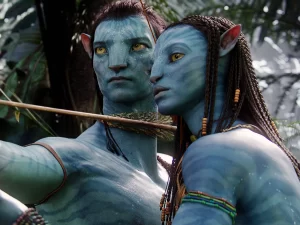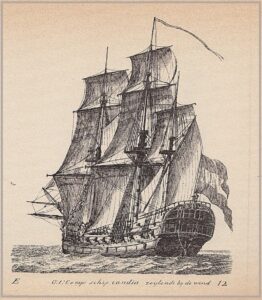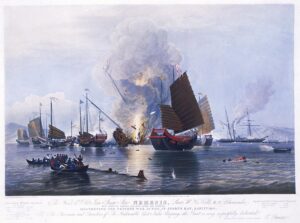
James Cameron’s Avatar (2009) is one of the most financially successful and technologically innovative movies in cinematic history. Within days after its release, the movie became famous for its ground-breaking special effects using CGI and 3D technology, captivating audiences with its breath-taking immersive world of Pandora, an exotic moon located light-years away from Earth.
In addition to its technological innovations and amazing visual experience, however, Avatar carries an anti-colonialism message, a message that is unmistakable, even for tech-geeks who hyper-focus on the visual effects. Using a science fiction setting, Avatar is an allegory based upon historical exploitation of indigenous populations and their environments. As he publicly confirms, Cameron designed the film to expose the destructive forces of colonialism, using the invasion of Pandora and the homeland of the Na’vi by the Resources Development Administration (RDA), a powerful technologically advanced corporation, as a metaphor for real- world invasions and exploitation. Invasion and colonization by powerful states is a common theme throughout history, but a close look at the film reveals distinct similarities to the actions of the Dutch East India Company (VOC) in the seventeenth century as it ruthlessly colonized the Banda islands.
“There’s something shareholders hate more than bad press and that’s a bad quarterly statement.”
Corporate Greed

Avatar begins with an invasion already in progress, and we quickly learn that the invaders, the RDA, which has already established an industrial complex on Pandora, is there for one reason and one reason only. Money. One kilogram of the rare mineral unobtanium is worth twenty million dollars and the Na’vi homeland sits on the largest deposit of unobtanium in the universe. Interestingly, the RDA has no affiliation with a government; it is a group of shareholders with no apparent accountability to anyone other than themselves and their business purpose. As Parker Selfridge, the RDA executive who personifies the corporation, reminds the scientists, unobtanium is “why we are here… it pays for the party.” Similarly, one of the distinguishing characteristics of the VOC’s colonial excursions is the fact that the VOC is a corporation, not a government, with great power, established to unite Dutch merchants in a power move to become a force in the race to make money in the spice trade ventures. Nutmeg had become a very popular spice in Europe, and there was only one place in the known world that it was grown, the Banda islands in the East Indies. Only by controlling Banda can the VOC establish a monopoly over one of the most expensive spices in the world. The VOC, empowered by the Dutch government to make treaties, declare and conduct war, and establish trading posts and military fortresses, arrives at Banda Neira in 1605, ready to do “business.”
“They sent me here to learn your ways.”
Deceptive Tactics
In Avatar, the audience’s first look at Pandora is a space vehicle’s overhead view of a massive strip mine, an ugly scar in a vibrant forest, indicating RDA has been in business on Pandora for awhile with extensive strip mining and deforestation underway as the RDA extracts unobtanium from Pandora’s substrata. We soon learn, however, that the RDA has a problem. The Na’vi clan, an indigenous people, is not receptive to relocating to give the RDA

access to the large deposit of unobtanium beneath their home, and the Na’vi’s hostility is escalating. The RDA then send human scientists, in the form of Na’vi avatars, to infiltrate the clan to persuade the Na’vi to relocate. The RDA’s ulterior purpose, however, is to use the avatars to “learn their ways,” a deceptive maneuver to discover the clan’s weaknesses to use against them in an attack. The VOC uses similar tactics when they encounter a reluctant Bandanese population. The Dutch East India Company wants a monopoly on the nutmeg trade, but Banda’s tribes are decentralized, located on multiple islands, operating independently using verbal agreements with buyers. The VOC, exploiting their cultural differences, sends in negotiators to persuade the Bandanese to sign a contract giving the VOC exclusive trading rights. The negotiators infiltrate, learn the customs, and get the signatures, knowing the Bandanese have no experience or knowledge of complicated written contracts.
“What if they won’t go?”
No Deal

Jake Sully, one of the RDA avatars infiltrating the Na’vi, reveals the crux of the problem. The land is their home. “There’s nothing that we have that they want.” The Na’vi are not going to deal, and they never give any indication they will deal. The VOC, however, extract a deal on paper from the Bandanese, but the deal is not real. The Bandanese want to get the best price for their nutmeg in a free market, and bargaining with buyers is their way of doing business. They have no intention of giving the VOC a monopoly.
“Force their cooperation or hammer them hard if they won’t.”
Military Power

Jake Sully, the protagonist, is a soldier, hired for the subversive purpose of forcing cooperation. When the RDA arrives at Pandora, they bring a powerful military force, ostensibly for security, but it soon becomes apparent that the military is there to be a “hammer.” Jake’s job is to make sure the Na’vi understand the threat of the military, the overwhelming power to force the Na’vi to relocate, or die. Similarly, in 1605, the VOC arrives in the Bandas with thirteen ships and fifteen hundred soldiers, a military threat hovering over the “negotiations,” making sure the Banda tribes understand the consequences of not cooperating.
“This is how it’s done. When people are sitting on [expletive] you want, you make them your enemy. Then you justify taking it.”
Justification

Jake Sully summarizes how he thinks the RDA would justify killing the native population: they are the enemy. Interestingly, the RDA never seem to care much about justification. They are there to do a job, and they do it. Parker Selfridge, RDA’s head administrator on Pandora, appears amoral, caring only about the company’s bottom line. Jake’s analysis of the tragic events on Pandora, however, appears to be James Cameron’s views of historical colonialism, and the VOC actions in Banda confirm it. With deliberate purpose, the VOC use threats and intimidation to provoke rebellion and aggressive behavior by the Bandanese, giving the VOC an excuse to use military action against the rebels. Just as the Na’vi would never leave their home, it had become clear that the Bandanese would never give the VOC
the control they want. In contrast to Cameron’s movie, in real life, the VOC need an excuse, a fake justification, to attack the defenseless native population. The Bandanese assassinate a VOC representative, and the VOC retaliates with a purge, killing more than ninety percent of the Bandanese population and relocating the remaining survivors.
“But sooner or later, you always have to wake up.”
Four hundred years ago, the VOC acquired a monopoly on the nutmeg trade, just one of many of its colonial expansion maneuvers, making the VOC one of the most powerful forces in Asian trade. In James Cameron’s Avatar, the Na’vi fight back gloriously and win, expelling the evil corporation and its military from Pandora. As Cameron proudly acknowledges, his message is not subtle.

If you are interested in articles like this be sure to check out more on The Roundup. For a tech-geek analysis of the wonders of “Flight of Passage,” Disney’s amazing Pandora banshee experience, see my blog at Disney Parks and More Blog.






